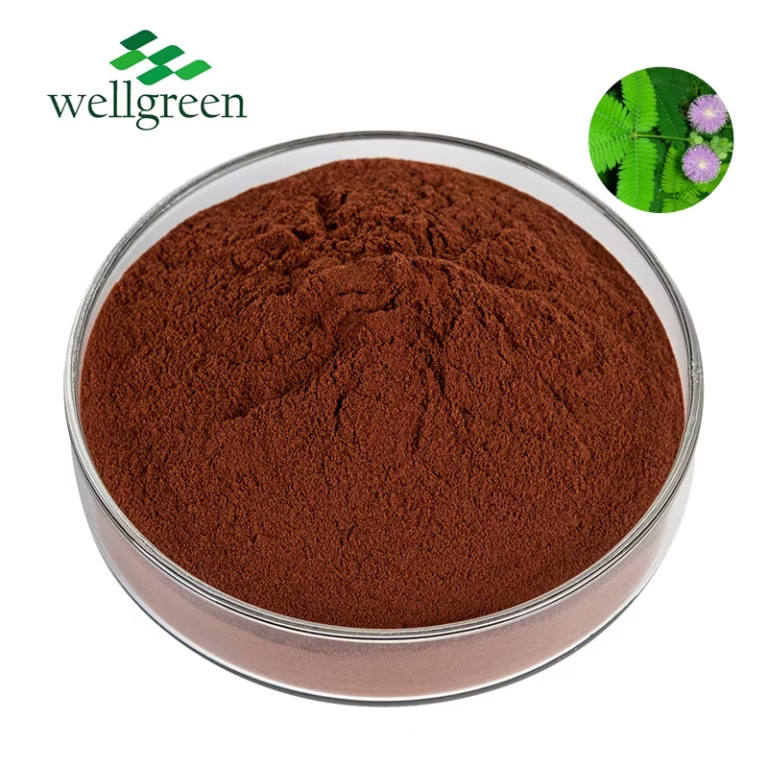
The root of the species Mimosa tenuiflora, commonly known as quebracho blanco, have been utilized for time immemorial in folk medicine across various regions.
Ethnobotanical studies reveal the efficacy of M. tenuiflora compounds in treating a wide range of ailments, including inflammation.
Traditional healers utilize the plant material in multiple forms such as powders to address illnesses.
Some key uses of M. tenuiflora contain antimicrobial activity, and it is also believed to possess anti-inflammatory properties.
An Examination of Mimosa tenuiflora Root Bark Extracts
This study focuses on analyzing the phytochemical content of Mimosa tenuiflora root bark extracts. The extraction methods employed involved various solvents, including ethanol. The resultant extracts were then subjected to a battery of analytical tools such as thin-layer chromatography (TLC) to characterize the predominant phytochemical molecules. Preliminary results reveal the presence of a diverse of secondary metabolites, including alkaloids, which are known for their biological properties. This comprehensive phytochemical analysis aims to provide valuable insights into the potential of Mimosa tenuiflora root bark as a source of herbal remedies.
Historic Uses and Potential Medicinal Benefits of M. tenuiflora Root Bark
M. tenuiflora, a tree renowned for its distinctive root bark, has been employed in traditional medicinal practices for generations. Indigenous cultures have long understood the medicinal properties of this valuable substance. The root bark is customarily processed and applied to address a spectrum of ailments, including digestive issues.
Contemporary research is initiating to investigate the potential of M. tenuiflora root bark in providing medicinal benefits. Studies have indicated that certain constituents present in the bark may possess antiviral properties, affecting its potential to fight a broad array of diseases. Moreover, preliminary research suggests that M. tenuiflora root bark may also possess neuroprotective effects, though more extensive studies are required to substantiate these findings.
Pharmacological Activity of Mimosa tenuiflora: A Review of Root Bark Studies
Mimosa tenuiflora, commonly identified as the jurema plant, has a profound history of traditional medicinal use in South America. The root bark of this variety is particularly valued for its diverse bioactive properties. Numerous studies have analyzed the potential actions of M. tenuiflora root bark, revealing a range of molecules with promising biological potency.
- One aspect of particular attention is the immunomodulatory capability of M. tenuiflora root bark extracts.
- Early findings suggests that these formulations may regulate the pain response, potentially providing comfort from multiple inflammatory disorders.
- Additionally, studies have indicated that M. tenuiflora root bark may possess cellular protective properties, which could contribute to human health by counteracting oxidative stress.
The multifaceted nature of M. tenuiflora root bark profile and its possibilities for therapeutic uses warrant further exploration. As research continues, a more comprehensive understanding of the pharmacological effects of M. tenuiflora root bark may emerge, potentially leading to the development of novel and effective therapeutic interventions.
Procurement and Characterization of Medicinally Potent Substances from *M. tenuiflora* Root Bark
This research focuses on the extraction of medicinal molecules from the root bark of *M. tenuiflora*. Several extraction methods, utilizing aqueous solutions, will be employed to isolate a variety of extracts. The identification of these extracts will involve assays like spectroscopy and molecular characterization. The biological effects of the isolated molecules will also be evaluated using cellular systems.
This project seeks to identify and characterize effective substances from *M. tenuiflora* root bark with potential applications in healthcare.
Examining the Anti-inflammatory and Antioxidant Properties of Mimosa tenuiflora Root Bark
Mimosa tenuiflora, commonly known as the Siberian tree, is a species native to tropical regions. Recent research has focused on its {potentialuses for human health, particularly concerning its immunomodulatory and antioxidant properties. The root bark of Mimosa tenuiflora is a rich wellspring of bioactive constituents such as alkaloids, which have been shown to exert potent influences against inflammation.
- Studies have demonstrated that extracts from Mimosa tenuiflora root bark can significantly reduce the production of inflammatory molecules in both *in vitro* and *in vivo* models.
- Additionally, these extracts have exhibited notable scavenging effects by neutralizing harmful free radicals, protecting cells from dysfunction.
These findings suggest that Mimosa tenuiflora root bark holds promise as a {naturalsupplement for various inflammatory and oxidative stress-related conditions. However, further research is needed to fully more info elucidate its mechanisms of action and optimize its therapeutic use.
